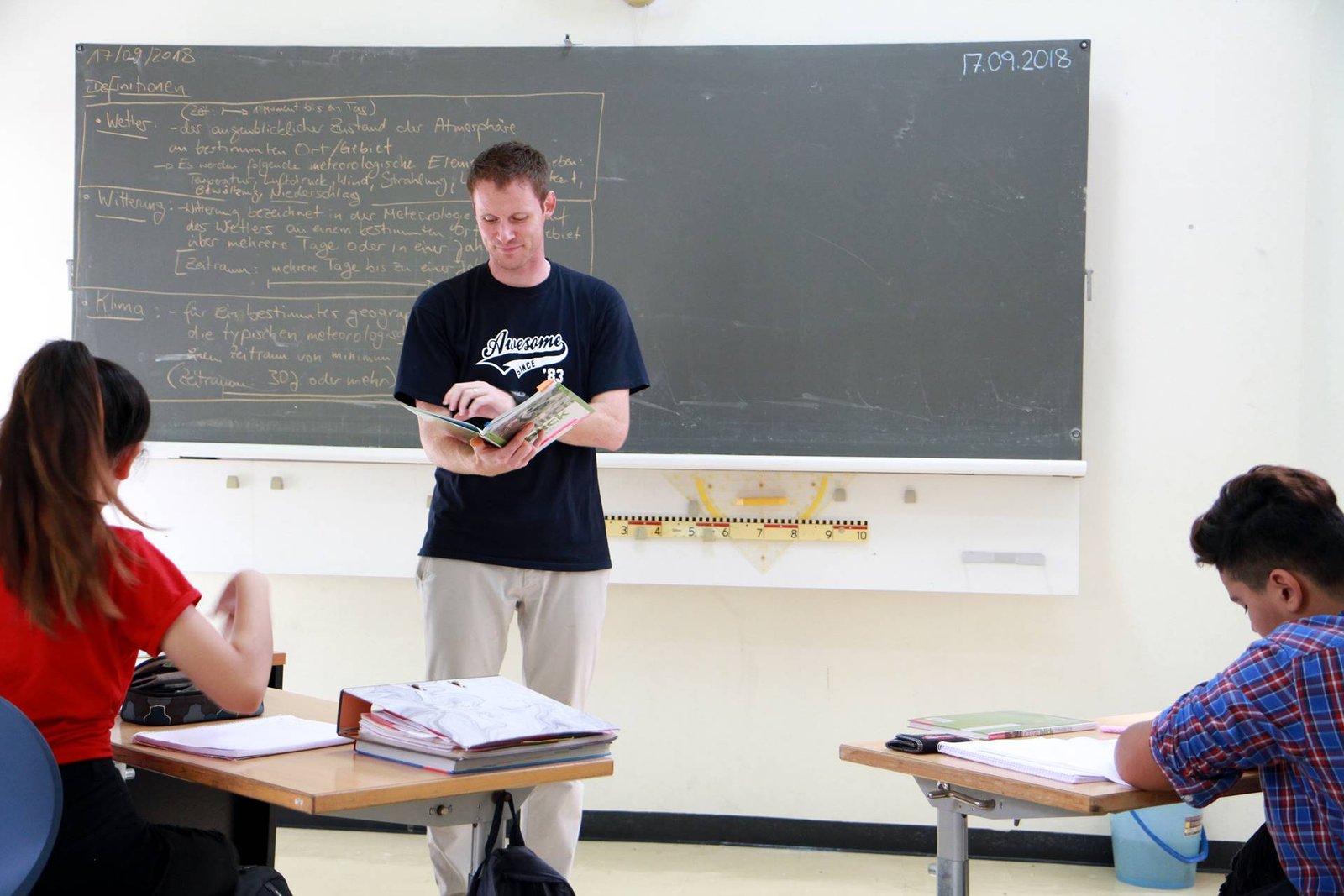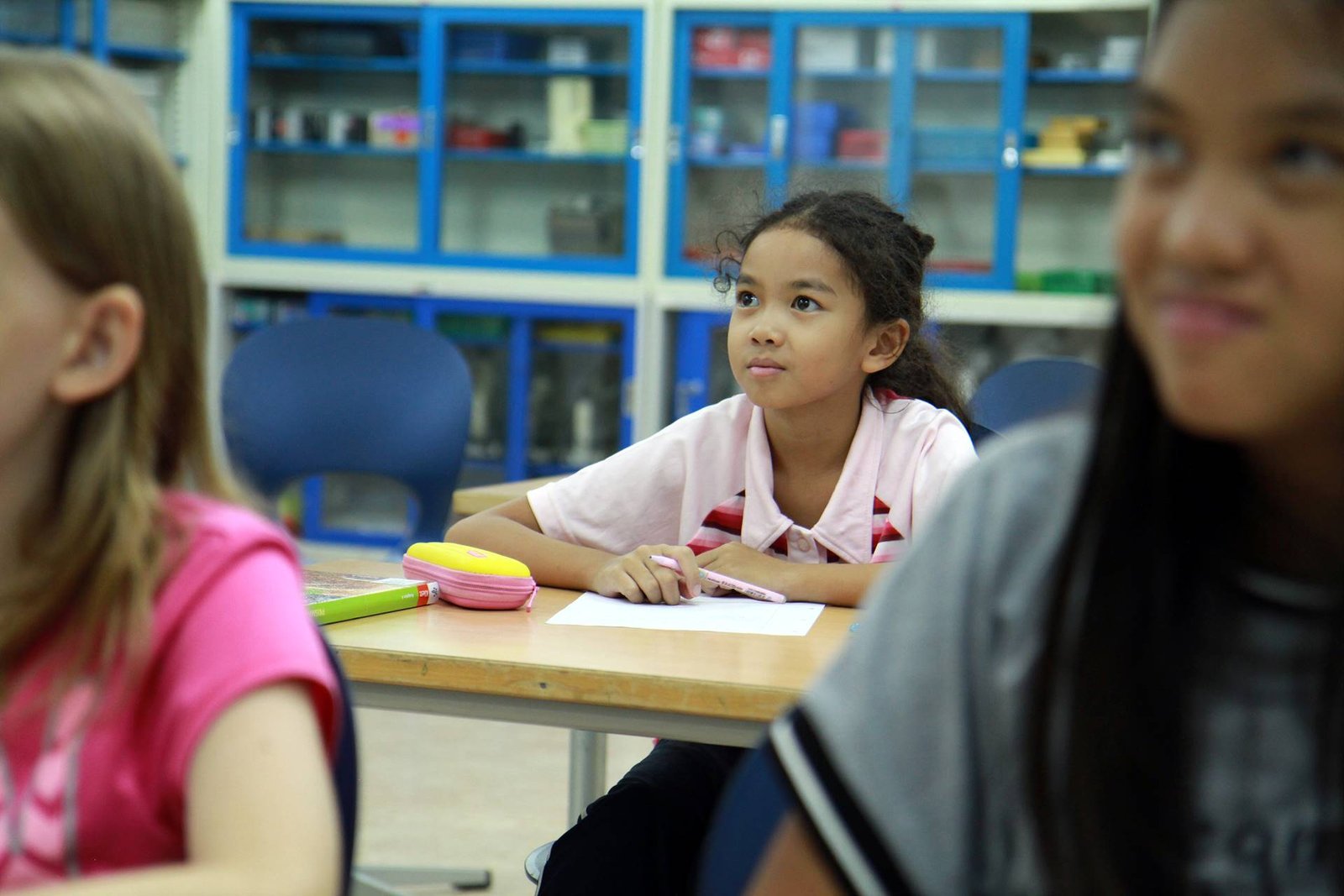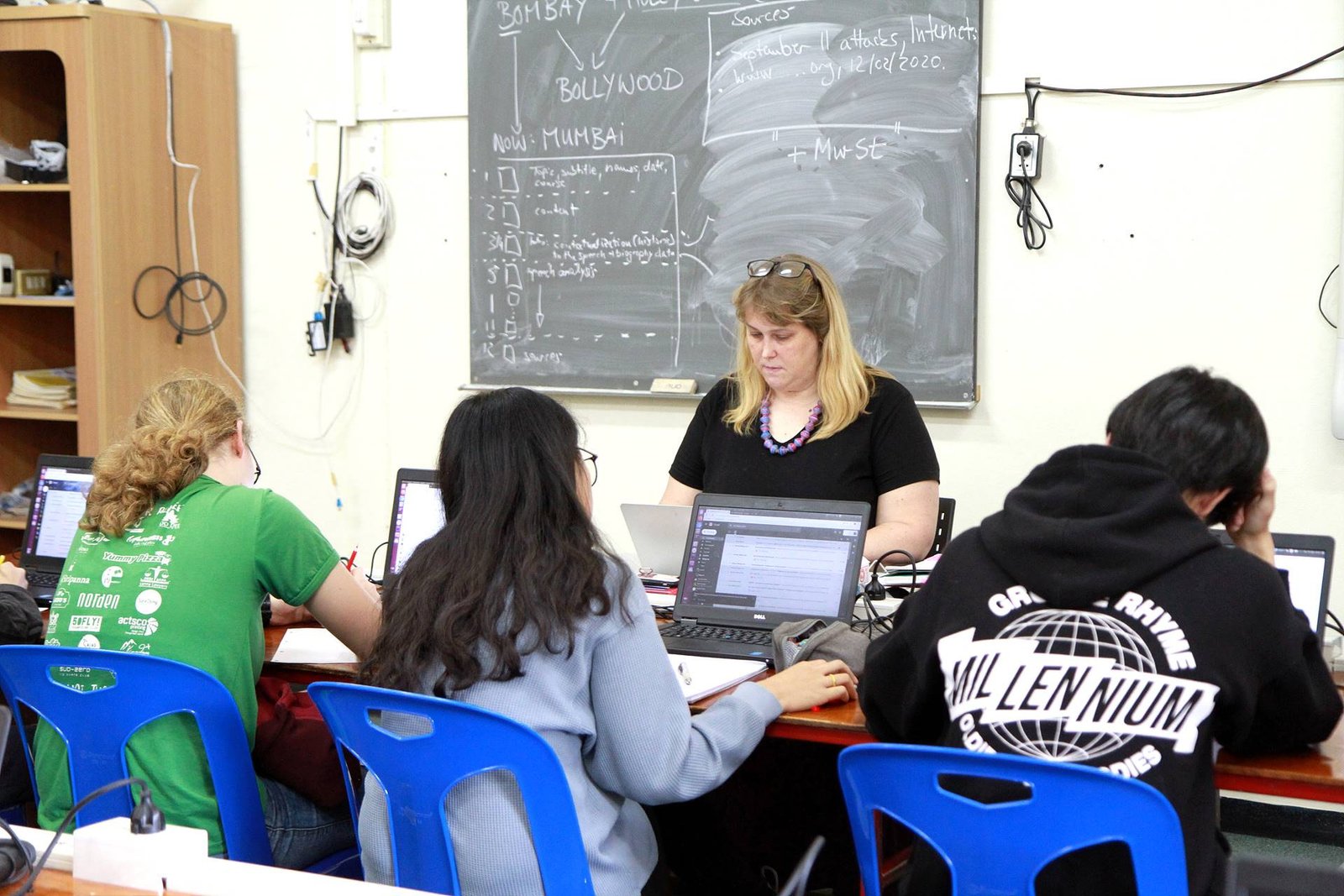Language Offers at CDSC
The primary teaching language and most important language of communication at CDSC is German. To meet the demands of an increasingly globalized world, our students also learn English and Thai, beginning in the 1st grade.
The demand for increased language skills is reflected through all grades, culminating in the German International Abitur (DIA) which has a strong foreign language emphasis compared to the domestic Abitur.
In the 6th grade, students qualified for Gymnasium begin to study French. The French language plays a particularly important role for our Swiss students but is also a prerequisite for students who plan to attend a Gymnasium in Germany. CDSC will assist new students in arranging French tutoring if extra language support is necessary. Beginning in the 8th grade, history courses are taught bilingually (English/German). Physics is taught completely in English beginning in 10th grade. The German International Abitur examinations test physics in English.
German
At the Christian German School Chiang Mai, we take special care to equip our students in due time with the language proficiency they need for the Abitur, as well as for the various certificates of secondary education I that we offer.
One prominent characteristic of the CDSC student body is that many of our students grow up at home learning two or even three languages. For this reason, the learning backgrounds that our students bring with them vary immensely, depending on their familial background and when they begin at our German school. German is not always their first or primary language.
There are higher, but entirely achievable, educational needs especially for children who come from bilingual households in which German is more of a second language than a first. Because the percent of bilingual households at CDSC is continually on the rise, German schools abroad in Asia have collaborated to develop a framework curriculum for children with German as a second language (DaZ).
A teacher conference meets at the end of each school year: first, to discuss and determine the current educational needs of our students, and second, to voice a poignant recommendation concerning the necessary scope of German-language learning support. At the start of the new school year, supportive measures are written down in an aid contract with the parents concerned. The goal is to reduce needs and increase the child’s chances of success at school.
Beginning in kindergarten, a separate language support program (DaF/DaZ)—in addition to language education already integrated in day-to-day school life—strengthens our children’s German skills. This program is based on Dr. Penner’s Kon-Lab-Method and takes places on a weekly basis in small groups. The assistance is tailored to the children’s language abilities and employs picture cards, games and worksheets. Its focus is on speaking.
DaZ lessons are structured around a rhythmic schedule. Activities rotate between games, movement and, if the children can already write, written exercises based on lesson content. We take up everyday experiences the children have in their immediate and familiar environment and encourage listening, speaking, story-telling and writing with a variety of language promotion materials. Ultimately, we aim to present children with meaningful opportunities to recognize and practice the rules and structures of the German language. Beginning with the flexible entrance grade in elementary school, specific difficulties arising from multilingualism are addressed and always related to topics handled in regular German class. This helps to build language awareness and confidence. As of 3rd grade, classwork focuses increasingly on practicing and developing written language skills.
The curriculum for German as a second language (DaZ) at German Schools Abroad provides the groundwork for our lesson plans. Through grades 1–4, appropriate DaZ textbooks are used for all students. DaZ education takes place in small groups and, when necessary, one-on-one lessons. It is always tuned to individual needs and proficiency. German teachers and language support teachers test and review students’ progress semi-annually and adjust their learning materials accordingly. The aim of DaZ education and support is to enable children to keep up with regular classes and to verbally engage in social and school-related situations appropriately and with confidence.
As of 7th grade, DaZ classes are denoted as language support classes. This supportive agenda leans heavily on regular classes and incorporates DFU—i.e., other subjects taught in German. Individual needs are taken into consideration even more so than before, and students receive support for in concrete classroom demands.
Since 2012, CDSC has and continues to offer its German Preparation Course, a class for foreign language newcomers.
The class is meant for children between the ages of 10–12 who have not been previously schooled in German and have not acquired written German language skills. It aims to facilitate their transition into the German school system and give them the option of completing the international Abitur.
After successfully completing this training course and writing the final exam, students are then taught on trial in the 5th grade of the upcoming school year. Quick understanding, diligence and perseverance are important prerequisites for entering the Gymnasium, and these are all the more relevant for those taking the German Preparation Course; for organizational reasons, no school form other than Gymnasium is available for foreign language newcomers. School forms are chosen for each student in the last quarter of the 5th grade. In addition to German and social-science classes, these students also attend German as a foreign language (DaF) classes up through the 7th grade. They should be proficient in German at the B2 level by the end of 7th grade and should be entirely integrated in the 8th grade in order to aim for the best possible certificate.
In the 2018/2019 school year, CDSC began offering non-native speakers of German the option to obtain the “Goethe-Zertifikat.” It serves as a way to test one’s own level of German mastery. At the same time, the “Goethe-Zertifikat” is an internationally recognized certificate that—if displaying level B2 or higher and presented in combination with a domestic certificate—grants the right of access to German universities, both domestic and abroad. 7th and 8th graders can acquire the B1-Zertifikat, 9th and 10th graders the B2-Zertifikat.
Thai
This entails two lessons per week and is mandatory from the flexible entry class (1st grade) to the 8th grade.
This includes two additional lessons per week to the regular Thai classes and is targeted at children whose mother tongue is Thai. This intensive Thai class is offered as a voluntary additional lesson.










